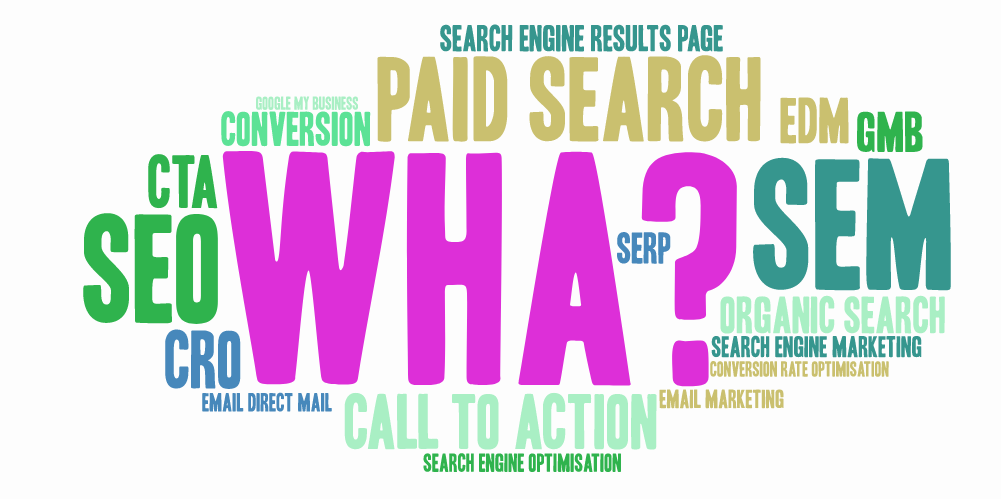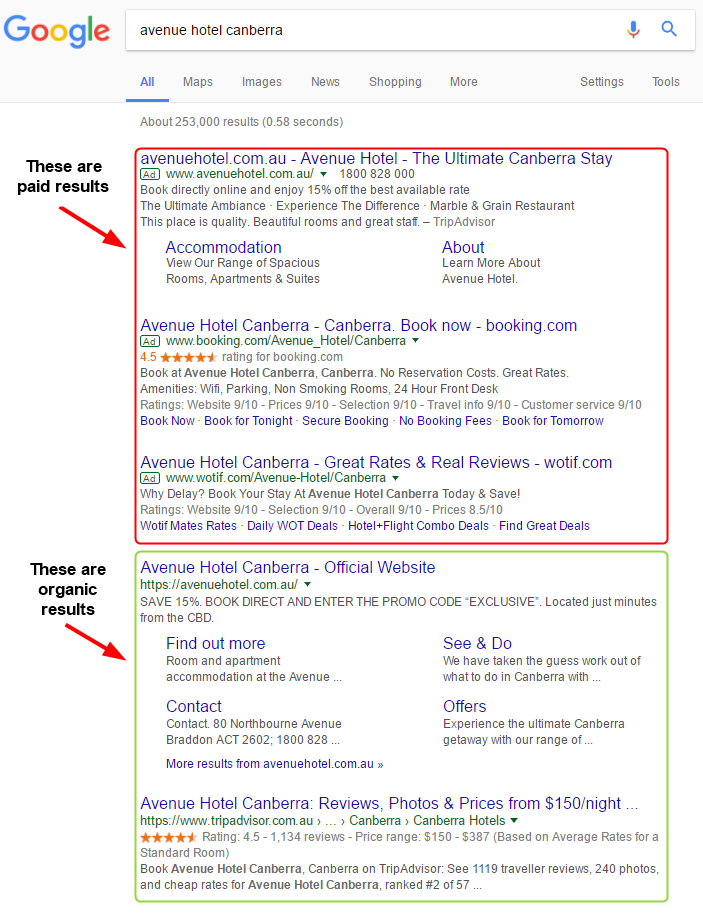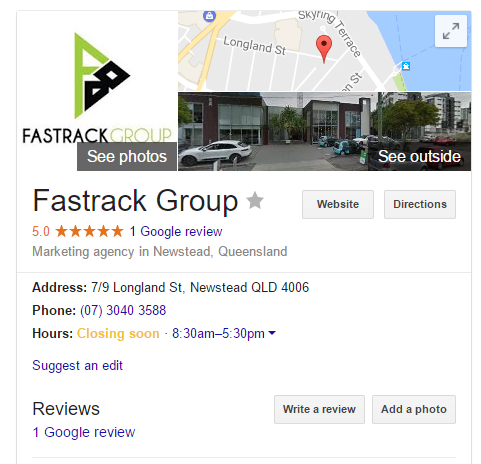Part 1: 10 Digital Marketing Terms You Need To Learn
By Amy Wood

Is your GMB in need of SEO to drive more organic traffic to your website, so your brilliant CRO and CTA comes into play to increase conversions?
Not sure? Then you need to keep reading.
Jargon: love it or hate it, it’s impossible to avoid in the world of marketing. We all know marketers love their jargon, and on behalf of the industry, we’re sorry to all those small business owners and interested parties alike who have no idea what’s going on.
While we try our best to explain things in simple and understandable terms, sometimes jargon just slips out. Look, we just want to save time by cutting out unnecessary words and getting to the good stuff, like improving your conversions and getting you more direct bookings! So we’ve put our heads together and come up with some of the most common terms you’ll hear us say, but may not always understand.
Organic vs Paid Search
When you search for anything in Google, Bing or Yahoo, there will be two results: organic and paid. Organic results are the most closely matched listings to your search query. Although they are technically free, the order in which websites appear are subject to complicated (and mostly unknown) Google algorithms. The main goal of SEO (which you’ll learn more about below) is to improve your website’s organic listings.
Paid search on the other hand are basically advertisements and involve platforms like Adwords and Bing Ads. A company has paid Google to display their webpage above other sites and organic listings in a bid to get the user to click through and purchase or enquire about a product or service. One way to tell a paid ad from an organic ad is to look for the  symbol next to the URL like in our example below.
symbol next to the URL like in our example below.

Paid and organic results from a Google search
SEO vs SEM
While we’re on the topic of search, it’s important to know the difference between Search Engine Optimisation (SEO) and Search Engine Marketing (SEM). SEO is the actual process of making changes both on and off a website to increase its rankings in the organic results in search engines (which we learned about above). This could include having high quality content, link building by using good quality backlinks in your content and the most important of all, having a mobile-friendly website.
A bonus term you should learn is PPC: PPC stands for pay-per-click and is when an advertiser or business pays every time someone clicks on their ad. You may have seen them in your Facebook feed, browsing a website or when you search something in Google (like the example above). This brings us to SEM.
SEM is basically an overarching term for the act of purchasing ads through search engines (which are paid results that we covered above). The most popular by far is Google Adwords with 2.4 million searches a minute in Australia alone. Google Adwords, Display Advertising and PPC all come under the watchful eye of an SEM specialist.
Hungry to learn more? We’ve dedicated a whole blog post to explaining SEO and PPC.
Conversion
If you want to learn any marketing term, it’s this one. A conversion is the point in which a user performs a desired action. This could range from signing up for your newsletter, making a sales enquiry or using your portal to book a room.
Conversion Rate Optimisation (CRO)
CRO is the process of increasing the percentage of visitors who carry out a conversion (or other specific action online). The optimisation part improves the performance of your website by moving call-to-action buttons, rearranging site layouts and simply making it easier for a user to convert. This is all in a day’s work for conversion rate optimisation specialist.
Call to Action (CTA)
A CTA is something that prompts your customer or visitor to do something such as book a room. It can be made up of text, imagery, graphics and buttons. An example you may have seen quite often is ‘BOOK NOW’. A successful CTA needs to be concise, eye-catching and make it clear to the user what they should expect after clicking.

EDM
No, we’re not talking about a genre of house music, we’re talking about Electronic Direct Mail. EDM is just a fancy term for an email newsletter and has proven to be one of the most effective ways of communicating with your hotel guests. Email marketing is based on emails sent to a list of customers, usually with special offers, industry news or advice. If you’re looking for ways to optimise your email marketing, we’ve recently put together a blog post: How to Make the Most of Your Hotel Email Marketing.
Google My Business (GMB)
If you use Google search or Maps, you’ll notice a list of local businesses show up. These listings are managed through Google My Business (GMB). You can customise your listing in GMB to include operating hours, pictures, contact details or even link it back to your online booking system.

Fastrack Group’s Google My Business listing
Search Engine Results Page (SERP)
Search Engine Results Page is something you would see everyday but not realise for your business it’s one of the most important pages on the internet! SERP’s are the result pages that arise from using an online search engine such as Bing or Google and is made up organic and paid listings. One of search engine optimisations (SEO) main goals is to get your website to the top of the first page.
We hope this guide helps you on your way to learning the language of digital marketing.
Check out part 2 here!


